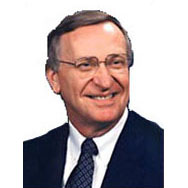
For a President who is known for delivering great speeches, his speech at Banneker was average. I made the trip to the school to hear his speech first-hand at the invitation of the White House because I love to hear the President speak. I suppose it is difficult to make a rah-rah, back-to-school speech very interesting. He did share that he was not a very good student in middle and high school, but a course in ethics he had to take in eighth grade and did not like very much still has an impact on him today.
I also went to hear his speech because I am interested in any new policy directions that might be undertaken at the federal level that might impact public education. There were of course no such announcements to his student audience. There were, however, a continuation of the mixed messages that politicians and policy makers have been giving about education since the great school reform efforts of the 1960s got underway and until today. The President implored the students to “take risks…test things out…expand your horizons…” But most students throughout American will leave the speech and return to classrooms that are governed by programs like No Child Left Behind, Race to the Top, and Standards of Learning that put a much greater emphasis on the acquisition of bits of knowledge than on exploration, a high-risk standardized testing program that discourages risk taking, and an ever more closely defined curriculum that limits the ability to expand one’s horizons. Every segment of society wants its piece of the curriculum: STEM to prepare students for jobs that are not yet defined in the future (and the schools get the blame if they do not correctly guess what the future knowledge and skill needs will be); physical education in response to an obesity crisis that schools are now expected to end; financial education proposed by the bankers and others in the financial community who seem to suggest that consumer behavior caused the current financial disaster and not their institutions and questionable management; and there are many others.
The teacher in the classroom is left in the middle of these mixed messages. They need to inspire, encourage, and promote learning, but by the way do not forget the standardized testing that all students must pass as though they are all at the same place in their learning. The President got it right when he said that teachers may be working harder than just about anyone these days. The mixed messages they get on education from every level of society does not make their job any easier.
Ken Plum is a member of the Virginia House of Delegates.










